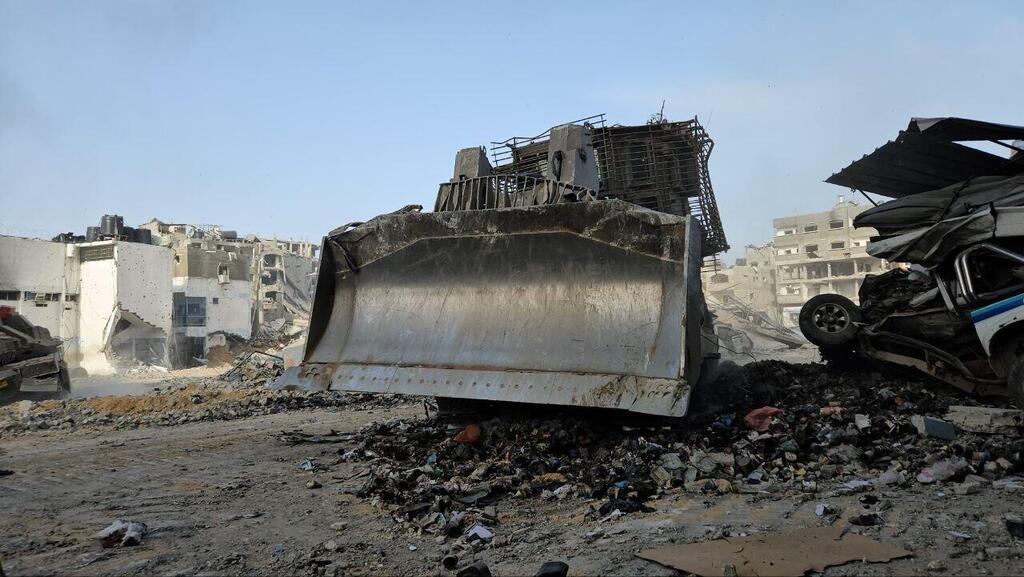In what may be one of President Joe Biden’s final actions before leaving the White House, the Biden administration announced its intention to approve an $8 billion arms deal with Israel. On Saturday morning, The New York Times reported that the U.S. State Department had "informally" notified Congress of the proposed deal.
2 View gallery


US aid on route?
(Photo: Susan Walsh/AP, , AFP PHOTO / HANDOUT / DVIDS / US ARMY / Staff Sergeant Cory D. Payne, Michael Fitzsimmons / Shutterstock)
The deal reportedly includes artillery shells, small-diameter bombs, munitions for fighter jets and helicopters, and GPS-guided bomb systems. However, many of the munitions in the package are not intended for immediate use, as production is expected to begin soon. Delivery to Israel could take years.
In the coming weeks, congressional committees are expected to review the deal and raise questions with the U.S. State Department. If concerns arise, these committees have the authority to delay the arms transfer.
Despite this announcement, the U.S. is still withholding the shipment of approximately 1,300 heavy bombs for the Israeli Air Force, which Israel had purchased from Boeing with Israeli funds rather than U.S. aid. Each bomb weighs close to a ton. The U.S. has expressed concerns that the Israeli military might use these bombs in ways that could harm civilian populations. While half of the shipment—previously frozen by the Biden administration—has been delivered to the Israeli military, the other half remains in storage in the United States.
Just over a month ago, and less than 24 hours after a ceasefire agreement in Lebanon was announced, President Biden approved a $680 million arms deal with Israel. At that time, American officials informed Congress of plans to supply additional Joint Direct Attack Munition (JDAM) kits to Israel, which convert unguided bombs into precision-guided munitions, as well as small-diameter bombs.
A week earlier, the U.S. Senate overwhelmingly rejected three proposals introduced by Senator Bernie Sanders, a Jewish progressive leader in the Democratic Party (Technically independent, but caucuses with the Democrats) and a prominent critic of Israel. These proposals called for halting weapons transfers to Israel following the war in Gaza, including tank shells, mortar bombs, and JDAM kits.
Get the Ynetnews app on your smartphone: Google Play: https://bit.ly/4eJ37pE | Apple App Store: https://bit.ly/3ZL7iNv
All senators who supported the proposals were Democrats, while members from both parties voted against them. The Biden administration opposed the measures, stating in a letter to Democratic senators prior to the vote that “providing military equipment to Israel is an investment in its long-term security as it faces threats from Iran and elsewhere.” The letter also noted that “the administration is continually working to improve conditions in Gaza.”
Around two months ago, Ynet revealed new details about the freeze on U.S. arms shipments to the Israeli military. One of the items requested for ground forces—a shipment of 134 D9 bulldozers—has been delayed at Caterpillar factories in the United States, awaiting an export permit from the State Department in Washington. Israel had already ordered and paid for the shipment.
The use of these bulldozers, primarily for demolishing structures in Gaza, has prompted significant internal criticism in the U.S., protests, and immense pressure on the Biden administration. As a result, the shipment has been frozen for several months. The impact is already being felt on the ground: according to Ynet inquiries, dozens of existing D9 bulldozers—heavily used in Israeli military operations in Gaza between November 2023 and mid-2024—are now in urgent need of maintenance.


